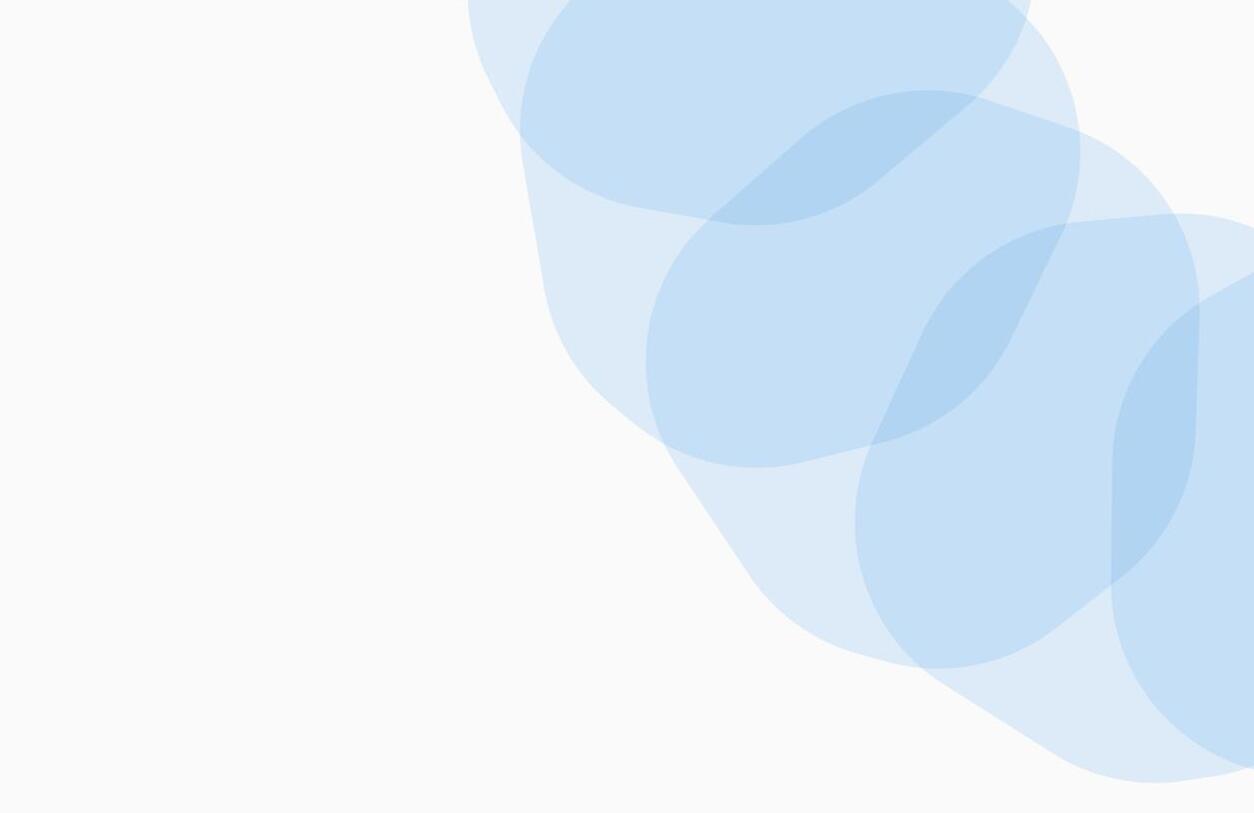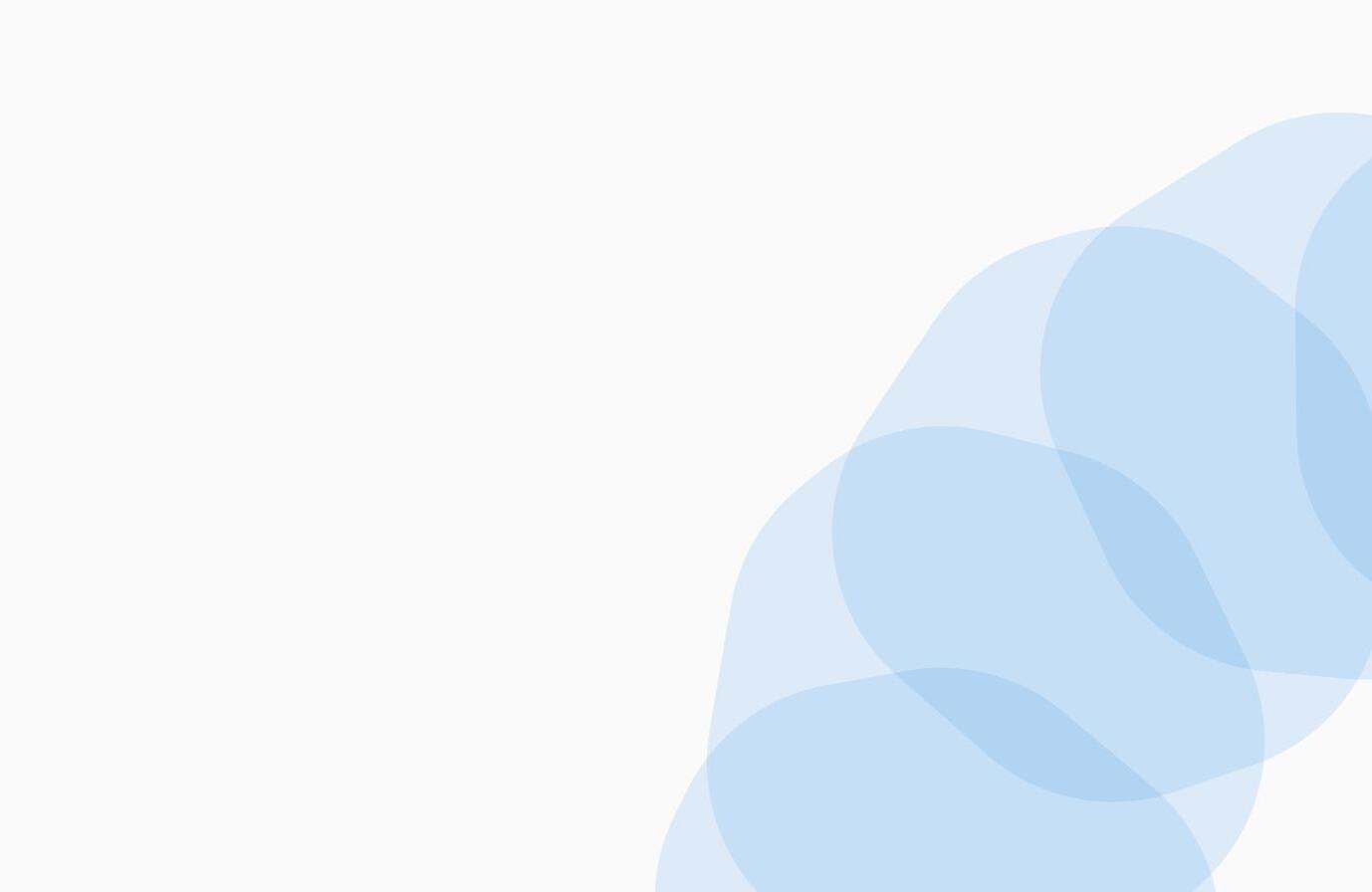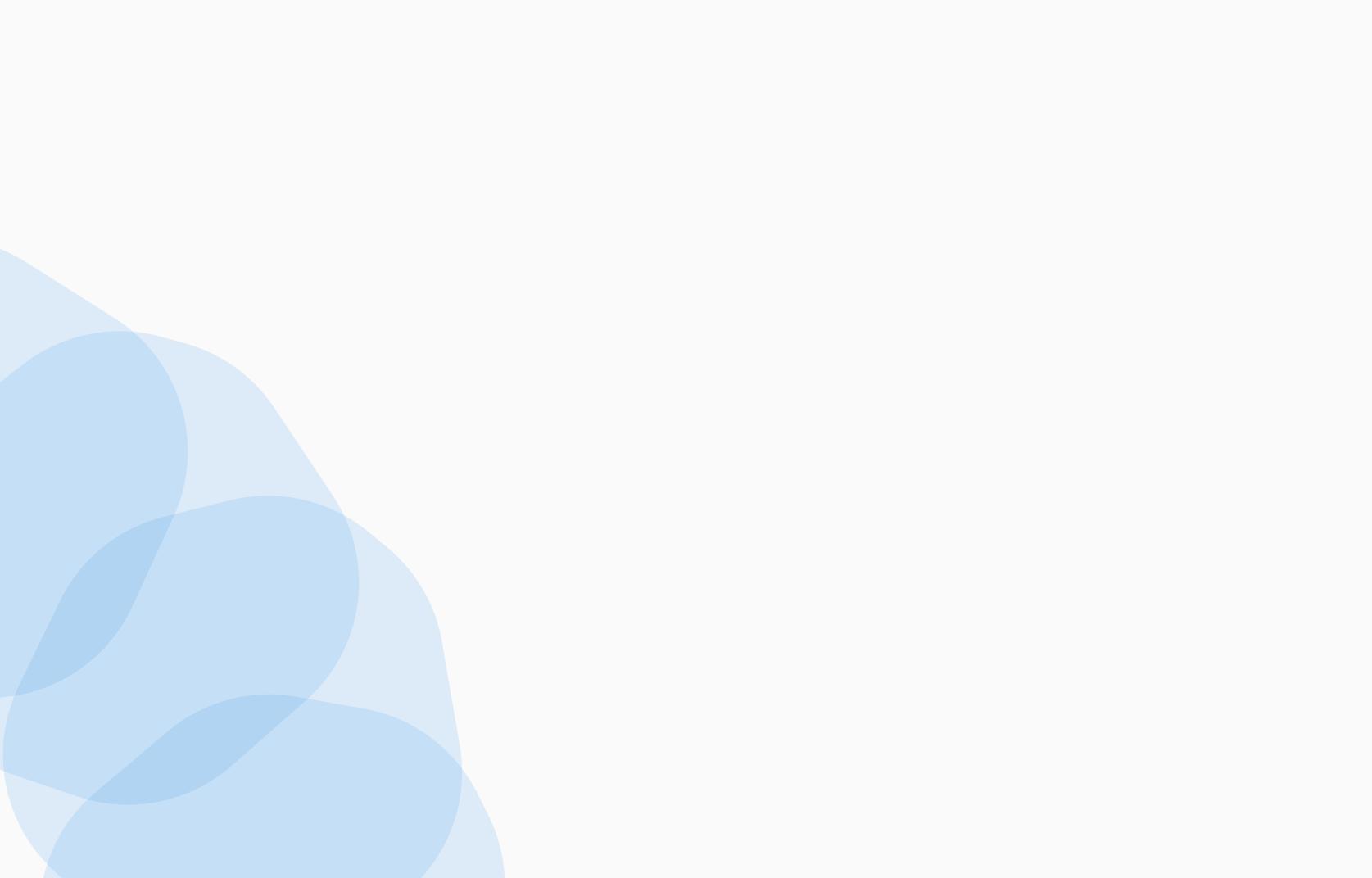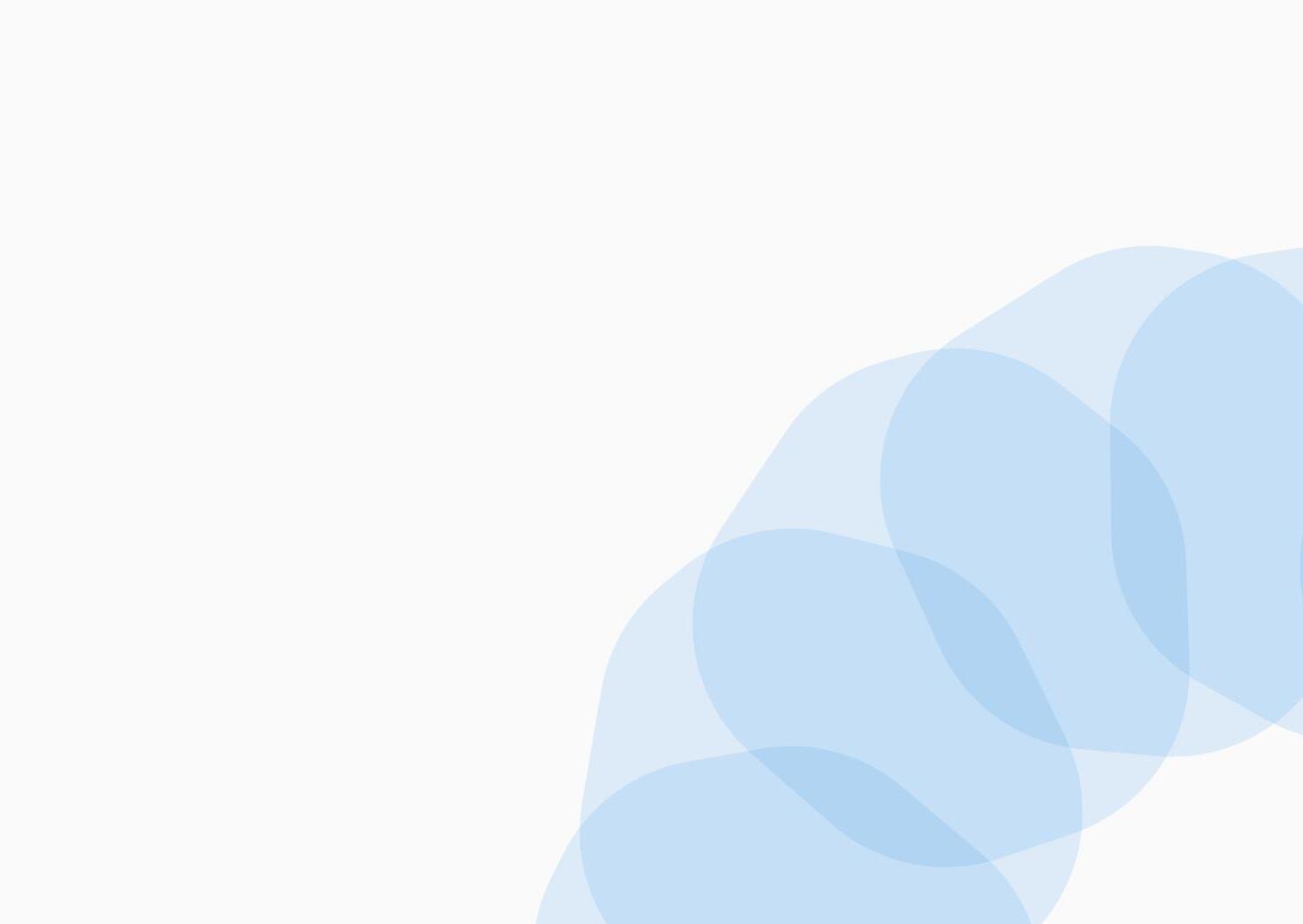





At Ropo, sustainability is about more than just compliance: it forms an integral part of the group’s strategy and values.

Ropo is the Nordic market leader and pioneer in invoicing technology, transforming the invoicing flow end-to-end. We help companies unify and streamline all invoicing processes to create a seamless workflow, providing full visibility, an elevated customer experience, and improved control with a single overview.
Committed to exceptional service and our one-platform strategy, we proudly support over 10,000 clients across Finland, Sweden, Norway, and Denmark.
Read more on page 6.


Our
In 2024, our management systems for quality, environmental management, information security, and assurance engagement were audited and certified across the group. We also continued to enforce our zero-tolerance policy, ensuring that all operations upheld the highest standards of sustainability, compliance, and workplace integrity.
In 2025, we will focus on delivering high-quality service and ensuring stability through Ropo One™, while enhancing sustainability awareness, promoting inclusive design, and continuing to enforce our zero-tolerance policy. We will also improve transparency in our compensation structure and enhance environmental transparency across the organization.
2024 was a year of crystallizing the Ropo vision and concept.

2024 was a year of crystallizing the Ropo vision and concept. We also rebranded from Ropo Capital to Ropo, refreshing our visual identity to better reflect our evolving mission. As part of this journey, we initiated the 2030 Vision Process to clarify our growth strategy and long-term goals. We also took steps to align with the Corporate Sustainability Reporting Directive (CSRD) and the European Sustainability Reporting Standards (ESRS).
A key milestone for the year was conducting a Double Materiality Assessment (DMA), which provided valuable insights into stakeholder expectations and the most material sustainability topics. This work strengthens the foundation of our sustainability strategy and ensures that we continue to drive meaningful impact.
The DMA and stakeholder surveys reaffirmed the importance of our commitment to responsible service delivery, business ethics, and IT security. On the social front, we recognize our responsibility to support our clients, end customers, and employees – and our stakeholders share this perspective. Our survey highlighted the significance of promoting a responsible economy and payment culture, securing service availability, usability, and inclusivity, and ensuring employee engagement.
As a pioneer in invoicing technology, we also acknowledge our role in reducing the environmental impact of invoice lifecycle management. Our focus on digitalization and automation helps minimizing the carbon footprint per invoice, contributing to a more sustainable financial ecosystem.
Looking ahead, we remain dedicated to integrating sustainability into every aspect of our business. We will continue refining our sustainability strategy in line with EU regulations while leveraging our technology to drive both financial and environmental efficiency. The year ahead presents new opportunities to build a more responsible and resilient future—one invoice at a time.
Ilkka Sammelvuo CEO


Porvoo, Finland
Gothenburg, Sweden
Stockholm, Sweden
Sandefjord, Norway
Oslo, Norway
Bergen, Norway
Ropo is the Nordic market leader and pioneer in invoicing technology, transforming the invoicing flow end-to-end. We help companies unify and streamline all invoicerelated processes providing control, full visibility, and improved efficiency. Our invoice lifecycle concept builds on proprietary technology, high-quality service, and advanced automation.
At the core of our services is Ropo One™, our proprietary platform developed in-house. Ropo One™ automates and unifies invoicing and receivables management, reducing manual data processing and improving transparency with real-time data access, reporting, and Business Intelligence (BI) tools. Through our single-service provider model, our clients gain full visibility and control over their receivables.
Headquartered in Kuopio, Finland, we have successfully expanded across the Nordics, supporting approximately 11,000 clients. In 2024, we extended our client portfolio to Denmark, aiming to strengthen our market presence in the coming years. Currently, we support our clients in Denmark from our offices in Finland, Sweden, and Norway.
Our service success is measured in relation to both our clients and their customers. Depending on the client’s service package, our responsibilities cover invoice delivery, sales ledger management, reminders, debt collection, and customer service related to payments.
High-quality service is at the heart of our business, driven by our dedicated personnel. Our organizational structure is designed to ensure strong customer satisfaction and long-term growth. Country-specific teams manage client and end-customer operations, while our group organization supports them with the Ropo concept, Ropo One™ technology, platform and service development, IT solutions, commercial models, branding, and governance. We foster a strong corporate culture and engage top talent to drive our mission forward.

Our vision is a better-flowing economy. By optimizing business flow and the end-to-end invoicing process, we help companies unlock their full potential and enhance the customer experience. We ensure that invoices reach end customers through their preferred channels, payments are processed correctly, credit risk is managed effectively, and high-quality customer service and payment advice are always available. We believe in full transparency, data-driven processes, and the seamless integration of technology and high-quality service. Delivering an outstanding experience for both our clients and their customers is our top priority.
At Ropo, sustainability is a core component of our business strategy. The Board of Directors serves as the primary governance and supervisory body overseeing our sustainability efforts and strategy. The Group Management is responsible for the execution of the strategy and ensuring that it is implemented in all operating countries. Group Management together with the Chief Brand and Communications Officer and local management teams are responsible to make sure that our sustainability strategy together with related policies and standards are followed and well-anchored across the Group.
Our Code of Conduct, referred to as the Code, is the primary guiding document for our sustainability efforts. It has been reviewed and approved by our Board of Directors. The Code outlines our expectations for ourselves and our business partners, ensuring that we consistently conduct responsible, ethical, and sustainable business. It serves as a guide for our employees, contractors, representatives, board members, and suppliers in all the countries we operate.
The Code is based on the 10 principles of the UN Global Compact and its underlying conventions and declaration. They include the Universal Declarations of Human Rights, the International Labour Organization’s Declaration on Fundamental Principles and
Rights at Work, the Rio Declaration on Environment and Development, and the United Nations Convention against Corruption. It highlights all areas of human and labor rights; environment; anti-corruption and ethics policies along with establishing a whistleblowing function and outlines the minimum requirements for sustainable business conduct. It is up to every employee, manager, executive and member of the board to operationalize it into the daily work. The ultimate responsibility of enforcing the Code will rest with our CEO. The Code is available on our websites.
Quality assurance is a key element for us at Ropo and we are proud to have it as an integrated part of our business. In 2024 we took it to the next level when we got certificates for ISO 9001 and ISO 14001 in all operating countries.
At the same time, we received the certificate for ISO/IEC 27001 for our information security management system including IT security, cybersecurity, and privacy protection.
We conduct mandatory training for all employees on a yearly basis regarding cyber security. This is also part of the onboarding process for new employees. For 2025, we aim to include the quality assurance into the mandatory training for all employees.

At Ropo, we have several policies implemented in our daily work and operations that are integral to our corporate governance and emphasize our commitment to business ethics. These policies guide our actions and ensure that we maintain high standards of conduct across all aspects of our business.
The policies include:
• Code of Conduct
• Privacy policy
• Cyber security policy
• Health and safety policy
• Diversity and inclusion policy
• Anti-corruption policy
• Environmental policy
These policies are designed to foster a culture of integrity, accountability, and respect within our organization, and they are crucial in helping us achieve our strategic goals while adhering to ethical principles.
New for 2024 is our environmental policy, which underlines our dedication to sustainability and environmental responsibility. Read more about it, including our decarbonization plan on page 50.
At Ropo, environmental aspects of sustainability are reflected in a close relationship with our suppliers. We work with a wide range of suppliers from services such as data hosting, information and communication technology, IT hardware and software and printing services. As part of our quality assurance, we set the same security requirements for our suppliers as we do for ourselves. We strive to choose suppliers that we perceive sustainable, preferably with certifications such as ISO 9001, ISO 14001 and ISO/IEC 27001.
Regarding information security, a supplier who do not have certification for ISO/IEC 27001 must file a third-party audit report to ensure they are compliant with all aspects of information security.
Supply chain management at Ropo Group is governed by our Code of Conduct, which outlines our expectations for everyone within the organization, as well as our partners and suppliers. The Code is based on frameworks and standards such as the United Nations Universal Declaration of Human Rights, along with the legislations in the countries where we operate, as described in the previous chapter. Moving forward, we aim to integrate sustainability as a core element in our criteria for supplier selection. We believe these steps are essential to adopting a holistic approach to sustainability across all our business areas.

The risk management process helps us improve our business by analyzing the consequences of our actions, both past and present. We use this process in all teams within the Group to evaluate risks based on probability, financial impact, and the need for action. Regular check-ups are conducted on both operational and management level, making risk management a key part of our daily operations. Based on the assessment, actions are planned to mitigate the risk to an approvable level.
The Board of Directors holds the primary responsibility for overseeing the company’s risk register, which are presented and reviewed at least once a year according to the yearly clock of Ropo’s risk management process.
The results from this process allow us to set actions and targets for future business growth.
The risk management is a part of our quality assurance, and during 2024 we integrated it into our management system.
Continuous role: Identifying country-level risks and monitoring risk responses. Take actions to mitigate identified risks.
Continuous role: Identifying country-level risks and monitoring risk responses. Take actions to mitigate identified risks.
Third line: Assurance on the effectiveness of first and second line of defense and advices to improve processes. Reports to management team and the board.
Second line: Establish of the common way of working with quality management and to coordinate the work within the group, contact with external auditor. Consultant to the first line.
First line: Identifying and controlling risks through the use of agreed guidelines, frameworks and controls.
Strategy & Vision
Double Materiality Assessment

At Ropo, sustainability is about more than just compliance – it is about living our values. We aim to ensure an ethical and environmentally friendly invoice lifecycle for our clients, and to provide an inspiring workplace for our employees. Our sustainability strategy supports our business vision of a better-flowing economy. We bring this vision to life by making the invoice flow more digital, ethical and data-driven through advanced technology and quality service. With a comprehensive materiality assessment, we ensure our sustainability reporting aligns with the expectations of our key stakeholders.
At Ropo, sustainability forms an integral part of the group’s strategy and values. Our sustainability work focuses on inspiring working environment, responsible service delivery and a climate-friendly invoice lifecycle service.
Vision

Strategic Approach
Material topics
Making invoice lifecycle more digital, ethical and data-driven with sustainable technology and service
Sustainability guides our actions and business development
We want our employees to be happy and feel well
We are resource conscious and focus on reducing environmental impacts of invoicing
We promote sustainable credit management and healthy payment culture
We are committed to standardized sustainability reporting and transparency throughout our value chain
Business ethics & responsible service delivery
• Corporate culture (G1)
• Corruption and bribery (G1)
• IT security and ethical guidelines for customers and end-users (S4)
• Internal privacy (GDPR) for internal workforce (S1)
People & inspiring working environment
• Working conditions (S1)
• Equal treatment and opportunities (S1)
Climate-friendly invoice lifecycle
• Climate change mitigation (E1)
• Energy (E1)
• Material consumption (E5)
• Circular waste management (E5)
Read more about the material topics related to Governance (G), Social (S), and Environmental (E) sustainability on page 12.
In the fall 2024, Ropo carried out its first double materiality assessment (DMA) in accordance with the principles of the reporting standards set out in the EU Corporate Sustainability Reporting Directive (CSRD). The aim was to identify the material impacts, risks, and opportunities related to Ropo’s sustainability and to begin preparations for complying with the reporting requirements that will take effect in 2025. The content of Ropo’s sustainability reporting on the year 2024 was also determined based on the results of the DMA. Ropo has defined its material sustainability topics in collaboration with its key stakeholders.
The DMA comprised two dimensions: the materiality of impacts and financial materiality. To identify material impacts related to sustainability topics, Ropo’s actual and potential negative and positive impacts on people or the environment over different times were assessed, and the views of different stakeholders were considered to identify the impacts and assess their materiality. Each sustainability topic with a material impact was also assessed regarding whether it has, or could have, material financial impacts on Ropo.
Based on the materiality assessment, the material sustainability topics were re-evaluated and selected for reporting. They are related to Ropo’s clients (IT security and ethical guidelines for clients and end customers), personnel (working conditions), and business ethics (corporate culture).
Based on the results of the DMA, climate change is one of Ropo’s material sustainability topics but not one of the top three in regards of impact, risk and opportunity analysis (IRO). This is because Ropo’s carbon footprint is not significant due to the nature of its operations. The service sector is generally considered to be low in emissions due to its low energy intensity. At Ropo, we strive for a climate-friendly invoice lifecycle and a key initiative for this is the digitalization of invoicing processes, which significantly reduces paper and logistic-based emissions. Ropo will therefore continue to report key information on its environmental impacts in the climate-friendly invoice lifecycle section.
(G1) Corporate culture
(S1) Equal treatment and opportunities
(S1) Internal privacy (GDPR) for internal workforce
(E5) Material consumption
(S2) Supply chain equal treatment
(G1) Protection of whistleblowers
(S2) Supply chain child labour and forced labour
(S2) Supply chain working conditions
(S4) Social inclusion of end-users
(E2) Pollution (E3) Water
reported
(S1) Working conditions
(S4) IT security and ethical guidelines for customers and end-users
(G1) Corruption and bribery
(E1) Climate change mitigation
(E1) Energy
(E5) Circular waste management
(G1) Management of relationships with suppliers
Reported (Top Material Priorities)
Reported (Material)
Not reported (Assessed but Excluded)
materiality
The DMA process involved four key steps, with the first step being to understand the context in which the analysis was conducted. In line with ESRS guidelines, this required a comprehensive review of the entire value chain, considering all relevant aspects — upstream, within the company’s operations, and downstream. It was essential to analyze the value chain activities across these three dimensions and to identify various IRO’s and dependencies.
In parallel with the value chain analysis, a stakeholder mapping was conducted to identify and categorize key stakeholders. This process involved compiling relevant information to better understand their needs and expectations, ensuring their perspectives were considered in the analysis. Key stakeholders to Ropo are employees, clients, suppliers and owners.
The findings from the value chain and stakeholder analysis were presented in a series of workshops with key business functions, including the CEO, CFO, HR, IT, and responsible people for sustainability and compliance, as well as owner representative (Adelis). During these workshops, the group conducted a thorough review of impacts, risks, and opportunities across all ten ESRS standards at the sub-topic level, covering the entire value chain — upstream, operations, and downstream. In regards of the financial impact, separate sessions were held with CFO and Group Financial Manager.
Following the consolidation of insights from stakeholder dialogues and workshops, a prioritization of all sub-topics was proposed and reached through consensus within the group. The final DMA results were subsequently presented to and approved by the Board of Directors.


Primary financial impact comes from clients, suppliers, authorities, and investors, with a societal focus on end customers.
The stakeholder dialogues were done in accordance with the AA1000SES framework, which seeks to ensure that different groups are included, that they have a say in what is material, and that the organization responds to the concerns raised in a transparent manner. The stakeholder groups included in the dialogues were Ropo employees, the management group, owners, clients and suppliers. Our owners and the management team engaged in workshops and surveys were distributed to clients, suppliers and employees across the organization.
The stakeholder analysis showed that the topics identified in the last material assessment carried out in 2021 were still relevant and considered material for Ropo. These were business ethics and responsible service delivery, people and inspiring work environment and climate-friendly invoice lifecycle. Our client’s top priority was foremost on maintaining data security and integrity and ensuring a legal and responsible invoice lifecycle process. Both got top scores in terms of priority and in relation to previous material topics from all of the participating clients.
As they match well to the result from the new DMA, Ropo will continue to focus on these areas and incorporate those with the upcoming reporting for environmental and sustainability impact.
Sustainability risks was assessed alongside financial, operational, and compliance risks to provide a comprehensive understanding of their potential impact on our business. The process of identifying, assessing, and managing sustainability opportunities will be integrated into our overall management framework by aligning them with strategic planning and budget review. This ensures that opportunities are contributing to long-term value creation and aligning with corporate objectives.
Input parameters include both internal and external data sources, such as stakeholder dialogues, regulatory frameworks, and sustainability reports. The analysis covers the entire value chain—upstream, operations, and downstream. When actual internal or external data is not available, assumptions are made based on internal knowledge of the company and reasonable outcomes, such as cost forecasts for procurement of material.
As a technology company, many of the critical risks we face pertain to automation and digitalization. These include integrity breaches and data misuse, biases in automated processes leading to discrimination, and errors in automation. Failure to address these risks could result in significant fines, but more importantly, in compromised trust and reputation, which may lead to severe financial consequences and negatively impact our clients.
Given that our employees are vital to the sustained success and growth of our company, their well-being is another essential area of concern. This encompasses risks such as poor health and safety standards, long working hours with insufficient time off, gender discrimination, and incidents of harassment. Beyond the negative effects on the individuals affected, these risks could also hinder our ability to attract skilled labor.
A final critical area concerns compliance, particularly the prevention of conflicts of interest and maintaining accountability and responsibility. Key compliance risks include corruption, climate change, and environmental degradation. We unequivocally condemn all forms of corruption and have detailed regulatory processes and practices in place, as outlined on page 20. While climate change represents one of today's most urgent challenges, the service-based nature of Ropo's operations allows us to mitigate some of its most severe impacts. Nevertheless, we are committed to actively reducing our contribution to climate change and fostering a more environmentally sustainable invoice lifecycle. This commitment extends from managing energy consumption in our offices to responsibly handling our IT equipment.
In terms of assumptions; the quantification and scoring of impacts, risks, and opportunities have been conducted on a best-effort basis, using the available data at the time of assessment. Where
data was unavailable, general assumptions have been applied to ensure a consistent and reasoned evaluation. For instance, in assessing supply chain risks, assumptions may have been made regarding supplier compliance with environmental and social standards, based on industry benchmarks and geographic risk profiles in the absence of supplier-specific disclosures.
We identify and assess areas of heightened risk by focusing on specific activities, business relationships, and geographies that are more likely to contribute to adverse sustainability impacts. This involves mapping potential and actual internal impacts and evaluating suppliers based on key purchasing categories, primary products/services, and country-specific risks to pinpoint areas with the highest potential for human rights or environmental challenges. Consultation with affected stakeholders have been made through stakeholder dialogues where employees, clients and suppliers have responded to a survey.
Risks have been assessed based on a desktop analysis covering sector and geographical risks, as well as mitigating actions such as if they have signed our Supplier Code of Conduct, outcome of supplier assessment questionnaires or audits. Prioritization in relation to scope, scale and irremediability has been conducted in conjunction with the DMA.

Sustainability highlights
Business ethics & responsible service delivery
People & inspiring working environment
Climate-friendly invoice lifecycle

Ropo’s commitment to sustainability is demonstrated through our focus on people and an inspiring working environment, responsible service delivery, and a climate-friendly invoice lifecycle. In 2024, we refined our vision, strategy, and the Ropo concept, including a thorough assessment of our sustainability strategy. We have also initiated alignment with upcoming sustainability reporting requirements. We believe that sustainable growth is built on client and employee satisfaction, responsible business practices, and transparency.
In 2024, we increased our decision-maker Net Promoter Score (NPS) from 56 to 59, reflecting a strong, group-wide satisfaction with our services. Additionally, we are proud to report continued enforcement of our zero-tolerance policy, with zero warnings, major information security incidents, cases of discrimination, or corruption.

Together with our clients, we continue to reduce invoice-related emissions by increasing digitalization. In 2024, the digital invoice rate rose by 8 percentage points. In Finland, the rate grew from 67% to 72%; in Sweden, from 64% to 82%; and in Norway, from 82% to 93%.

We introduced a group-wide environmental policy that strengthens our sustainability strategy. At its core is our new decarbonization plan, which defines key focus areas for reducing the negative climate impact of invoicing operations. The full policy will be published on our website.

In 2024, we achieved group-wide certification for ISO 9001 (Quality Management), ISO 14001 (Environmental Management) and ISO/IEC 27001 (Information Security Management). We also attained ISAE 3402 Type II in all operating countries, reinforcing the reliability and transparency for our assurance engagement.

Our employee platforms and company records now support a broader range of gender designations, enabling individuals to select the gender identity that best reflects them across all internal systems.
We are always committed to:

0 warnings or other sanctions from authorities
For further details, see page 24-25
0 major information security incidents
For further details, see page 22
0 cases of discrimination within the group
For further details, see page 34
0 cases of corruption within the group
For further details, see page 20
Actively working to eliminate corruption
Maintaining data security and integrity
Ensuring a legal and responsible invoice lifecycle process
Promoting a responsible economy and payment culture
Developing availability, usability, and inclusive services

At Ropo, acting as a trusted and secure strategic partner is the foundation for our business. We serve our clients by ensuring that vital processes along the value chain of the invoice lifecycle and financial transactions are covered.
Guaranteeing a legal and responsible invoice lifecycle process, ensuring a high standard of data security, and promoting a responsible payment culture are our top priorities.
At Ropo, we maintain a zero-tolerance policy towards all forms of unethical business conduct and corruption, whether carried out by our employees, contractors within the organization, or third parties acting on our behalf. We comply with anti-corruption laws and regulations and follow established anticorruption and sanctions lists such as those of the Office of Foreign Assets Control (OFAC), the National Bureau of Investigation (NBI), the European Union (EU) and the United Nations (UN). In addition, our work is governed through our certified management systems, including ISO 9001 and the International Standard on Assurance Engagements ISAE 3402.
In 2024, we accomplished our target of a group-wide certification for our environmental management system (ISO 14001) and information security management system (ISO/IEC 27001).
We continued to work on both group and country level with our anti-corruption and combating terrorist financing principles awareness efforts. On group level, our Group Risk and Compliance Officer is responsible for overseeing group-level compliance, anti-corruption, and anti-money laundering strategies. The local compliance teams manage day-today operations, including Know Your Customer (KYC) and Anti-Money Laundering (AML) practices.
All employees participate in mandatory annual training regarding anti-corruption. In 2024, we investigated seven suspicious
transactions whereof we identified two cases involving possible corruption. The first case involved a suspicious invoicing and an unfounded debt. The second case related to a suspicion that a debtor made a payment on behalf of a sanction-listed person without legal grounds. Both cases were reported to the authorities.
In accordance with anti-money laundering legislation, we are obliged to identify and monitor our clients and their customers’ activities through risk assessment processes. Prior to engaging with new clients, we conduct thorough risk assessments and maintain regular follow-ups with established business partners. If there is any suspicion of serious criminal activities, we initiate a due diligence investigation into the client and, if necessary, report our findings to the relevant authorities. Additionally, as part of our risk assessment procedures, we verify the credit history of all new employees.
Ropo has implemented a comprehensive anti-money laundering policy, which includes combating terrorist financing principles. This policy, along with the principles, has been integrated into our annual employee training program, which is mandatory for all new employees during their onboarding period. Furthermore, all employees are required to renew their training annually.
By increasing awareness and understanding of anti-money laundering through our

comprehensive policy and mandatory training, we ensure that these practices are ingrained in Ropo’s daily operations. This underscores the importance of enhancing the tracking, investigation, and recovery of the proceeds of crime across the Ropo Group.
Ropo maintains a transparent business environment and high ethical standards. We prioritize safety and respect for all individuals impacted by our operations. Our whistleblowing service, managed by external partner WhistleB by Navex, allows reporting of serious risks or misconduct anonymously. The secure, encrypted communication channel ensures confidentiality. Access the whistleblowing function via our intranet or Code of Conduct on our website. We encourage employees and business partners to report any violations within Ropo Group anonymously.
The whistleblowing service aims to empower individuals to speak up without fear of retaliation. Reports can be made anonymously, ensuring that individuals feel secure when coming forward. It is accessible to all employees through our intranet and to external parties via our Code of Conduct, which is published on our website. In line with our Code of Conduct, we encourage all employees and business partners to report any misconduct or suspected violations within the Ropo Group.

At Ropo, acting as a trusted and secure business partner is key to our success, and it requires a high standard of data security and privacy protection. Our business model necessitates handling a large amount of sensitive information both digitally and through physical documents. This position comes with significant responsibility in terms of trustworthiness. We must ensure we uphold our data security and protect our clients’ and their customers’ data. As a tech company handling vast amounts of personal and financial information, many of the critical risks facing the Ropo Group relate to cybersecurity and data privacy, including integrity breaches and misuse of data. To ensure data integrity for our clients, their customers, and our business partners, and to mitigate the risk, we work closely with an external security operations centre with a well-established system to protect data against unauthorized access. In close collaboration with our internal information office at Ropo, we monitor potential offensive manoeuvres and cyberattacks. To increase awareness of data security and cybersecurity risks, our employees are required to undergo annual training related to the subject. This training is part of our new employee onboarding process and forms part of our group-wide employee training program. Continuous development and testing of our systems and platforms are essential parts of this work.
In addition to the employee trainings, we continually invest in secure technologies, regularly review and update our privacy policies, and conduct risk assessments to identify and mitigate potential vulnerabilities.
In 2024 we received the certificate for ISO/ IEC 27001 for our information security management system, including IT security, cybersecurity, and privacy protection.
The resources allocated to maintain the set level of security measures are €260,000 operating expenses (OpEx). We estimate this to increase with 5% for upcoming 3-5 years. This refers to inflation and price increases from suppliers.
Identified leaks, thefts, or losses of customer data are handled according to our established group-wide incident response protocol. In the event of an incident, the Data Protection Authority must be notified for further investigation in line with the requirements of the GDPR, unless the personal data breach is unlikely to result in a risk to the rights and freedoms of natural persons. Even in cases where our legal team assesses that there is no risk, Ropo documents all personal data incidents, including the circumstances surrounding the incident, its effects, and the corrective measures taken.
In 2024, we continued our efforts in improving transparency and further developed our data protection measures. During the reporting year, we identified 347 cases of suspected and identified leaks, thefts, or losses of customer data, 342 of which were not considered to be a risk to the

0 major information security incidents in 2024.
rights of freedoms of natural persons.
The other five cases included one unlawful continuance collection of data by a supplier of Ropo, after transferring the case to us. This was due to an incorrect setting in the supplier’s application. One case related to a bug in our platform which resulted in in an incorrect import of data. Two cases related to an incorrect implementation by a subcontractor and the last one was due to a human error when updating an address.
Ropo has conducted necessary mitigative actions in each of the 347 cases, discussed corrective action with the involved employees and suppliers, and complied with the authorities’ requests regarding necessary actions related to a complaint. While we assess the number of complaints and breaches as being relatively low compared to the total number of contacts, we are dedicated to reducing these incidents further, demonstrating our commitment to continuously improving our operations and processes.
* Total number of suspected and identified cases.

During the reporting year, we achieved group-wide certification for ISO 9001 (Quality Management), ISO 14001 (Environmental Management) and ISO/IEC 27001 (Information Security Management). We also attained ISAE 3402 Type II in all operating countries.
We aim to enhance the user experience, including inclusiveness, and promote sustainability awareness among our stakeholders. In 2025, we plan to finalize and implement our procurement and sourcing policy, incorporating our sustainability principles and upholding corporate governance standards. We will also continue strengthening our quality assurance and expertise in management systems across the organization by making them part of mandatory training for all employees.
The core of our invoice lifecycle service is built around our proprietary Ropo One™ software platform, developed in-house to automate and unify multiple invoicing- and payment-related processes crucial for our clients’ businesses. Our business is based on trust and transparency, as well as laws, regulations, and ethical standards. High quality is our top priority; we have certified management systems covering all integral parts of our service processes, with quality assurance embedded within our operations, ensuring that compliance activities and service delivery consistently align with regulations, ethical standards, and our internal policies.
We measure quality and operating stability annually across all clients and system users within the group. In 2024, the percentage of the most satisfied clients regarding quality decreased by 12 percentage points, from 76% to 64%, while the percentage of dissatisfied respondents remained nearly unchanged (2023: 9%, 2024: 10%). A similar trend was observed in operating stability: the percentage of highly satisfied respondents declined from 77% to 62%, while dissatisfaction increased slightly from 7% to 11%. Additionally, the number of “Can’t say” responses for both quality and operating stability doubled compared to the previous year. While our clients remain generally satisfied with our operations, our goal is to increase the share of top scores.
In 2024, we got certification for ISO 9001, ISO 14001 and ISO/IEC 27001 in all our operating countries for our integrated quality, information security, and environmental management systems. In addition, we also achieved ISAE 3402 Type II for assurance engagement in all operating countries.
We continued to work with our standardized reclamation management procedures, which improves transparency and enable better monitoring through our CRM system. To uphold our compliance and service quality, we conduct regular training on the invoice lifecycle for both new and current employees. We also provide external training together with authorities such as the Regional State Administrative Agency on good debt collection practices, the Central Criminal Police on anti-money laundering, and the Execution Office on IT systems and law-based procedures.
We follow all applicable legislation in the countries where we operate, and our internal policies and guidelines are developed in accordance with regulations and recommendations from regulatory bodies. To uphold the highest international standards, our management systems for quality, information security, environment, and assurance engagement are well-established, tested, and regularly monitored from process establishment and environmental impact evaluation to client and end-customer communications protocols. Our invoice lifecycle service covers receivables management, including payment monitoring, debt collection, and customer service related to payments. Debt collection is regulated and closely audited by authorities, and potential positive or negative outcomes are made public. We conduct our operations in line with the Debt Collection Act and other relevant legislation, adhering to the Finnish Consumer Ombudsman’s guidelines for good debt collection practice in Finland, the Swedish Financial Supervisory Authority’s general guidelines and accepted practices in Sweden, and the Financial Supervisory Authority of Norway’s guidelines in Norway. Addition-
ally, Ropo is an organized enterprise committed to the Finnish Union of Debt Collecting Agencies’ principles of responsible debt collection.
The Group Risk and Compliance officer, along with local compliance officers, ensures that Ropo’s policies, guidelines, external requirements, and risk assessment methods are well-anchored across each operating country. Local teams managed by local management handle legal compliance and operations, overseen by the Head of Legal in Finland, Sweden, and Norway.
Compliance with our certified management systems is overseen by Group Functions leaders; the Group Risk and Compliance Officer responsible for quality and environmental management systems, and the Chief Information Officer for the information security management system. These leaders, along with local management teams and quality managers, ensure that group standards, policies, and guidelines are thoroughly integrated in all operating countries. We maintain robust internal controls but also prioritize transparency. Our whistleblowing service allows employees, clients, and other stakeholders to anonymously report any suspected misconduct or unethical behaviour, reinforcing our dedication to integrity and accountability.
In 2024, we did not identify any non-compliance with laws or regulations on any of our operating markets. In Finland, the Regional State Administrative Agency provided guidance in three areas: ensuring that actual beneficiaries of clients are known to us in situations of indirect ownership, adjust the collection fee for B2B to either reflect standard compensation fee or reminder and ensure sufficient payment and response times for consumer debtors. The Office of the Data Protection Ombudsman, TSV, provided guidance in one case: ensure to leave all the data to the data subject upon request, not only the additional data in relation to previous request. Finally, a guidance from Finnish Competition and Consumers Authority, KKV: ensure sufficient payment and reaction time for B2C end customers.
During the reporting year, we received three reclamations concerning our invoice lifecycle service. This is relatively low in relation to the overall volume of nearly 80 million invoices we processed in the service, although we always strive to keep reclamations at a minimum.

Zero non-compliance with laws and regulations in 2024.
We adhere to a well-defined process for selecting our clients, ensuring alignment with our internal policy documents that uphold our ethical principles and values. Our group-wide policy encompasses an exclusion list, covering sectors we do not engage with for new client acquisition. This list includes, but is not limited to, providers of instant loans, gambling services, and entities associated with increased risks of over-indebtedness or deceptive practices in the purchasing process. Our exclusion criteria reflect our commitment to our values and service mission, which aims to mitigate payment difficulties and over-indebtedness. In addition to our exclusion policy, we conduct thorough Know Your Customer (KYC) activities as a fundamental aspect of our anti-money laundering efforts, detailed on page 20. These activities encompass regular reassessments and due diligence, integral to our client selection and retention processes. Our compliance team, in collaboration with local compliance officers, diligently monitors these procedures daily and coordinates with local management teams regularly. The Group Risk and Compliance Officer provides support to local entities, assisting with risk management and the enhancement of KYC protocols.

During 2024, we implemented the new way of working with risk reporting across the group. This is now aligned at all levels.
Compliance key metrics include a zero-tolerance policy with the target of zero non-compliance with laws and regulations. To support this target, we will continue to ensure that all operations adhere to the highest standards of sustainability, compliance and workplace integrity.
During 2025 we will implement a risk management tool to help improve the risk assessment, and follow-up for the group.
At Ropo we talk about our two-sided platform, meaning that we serve both our clients and their customers, to ensure a balanced and fair payment ecosystem. Through our services, we promote a responsible economy and payment culture which emphasizes the importance of timely invoice payments. We ensure that invoices reach customers through their preferred channels, payments are processed accurately, and high-quality payment advice is available to support customer relations, reduce financial difficulties and prevent over-indebtedness.
For our clients, we are a strategic partner offering a comprehensive platform for invoice and receivables management. We provide complete access to invoicing and payment data, along with other tools to ensure sustainable credit management and enhanced customer understanding. Our impact extends beyond our clients and their customers, contributing to a society that values a healthy payment culture where companies can sell on credit and flexible payment arrangements are available when needed, fostering economic resilience.
Our service and success are measured in relation to both our clients and their customers. Our key performance indicators (KPIs) related to promoting responsible economy and payment culture include client and end-customer satisfaction, measured with systematic NPS surveys, number of payment arrangements provided, rate of invoices paid on time, and the average payment period. Clients and end customers are regularly asked to evaluate the customer experience, and this information is used to drive continuous improvement.

For our clients, we are a strategic partner offering a comprehensive platform for invoice and receivables management.

Below is a representation of our KPIs which shows our indirect impact on the economy through payments paid on time, average days sales outstanding and debt cases avoided. It also provides an understanding of the number of payment plans that we set up to help our end customers clear their debts and avoid a bad credit record.
In 2024, we launched an improved MyRopo service for end customers, focusing on accessibility, user experience, and features that simplify invoice and payment handling. We also enhanced interaction with our customer service through a new message center requiring authentication. Client and end-customer satisfaction remained our key metrics.
In 2025, we will continue developing our platforms and ensuring compliance with the European Accessibility Act (EAA). We aim to achieve our goals across all NPS metrics and ensure consistent, comparable data across the group.
* We updated the data collection method in 2024, changing from response volumes to contact volumes. Figures for 2023 have been adjusted to be comparable with 2024. Data prior 2023 in Sweden and Norway is not comparable and therefore not available.
**Payment plans in Norway reflects the lifecycle service only.
***For the transfer of due date, the data prior to 2024 in Norway is not comparable and therefore not available.
*For the NPS for the projects, the number for 2024 is only reflecting Finland as there where no answers from clients on the project’s surveys in Norway or Sweden.
** We updated the data collection method in 2024. Figures for 2022 and 2023 have been adjusted to be comparable with 2024 data and therefore differ from those in the 2023 report.
As our business model relies on technology and we offer our clients and their customers digital platforms, our sustainability commitment places a strong emphasis on user interfaces (UI), inclusive design, and availability.
While focusing on our platforms, we recognize our responsibility across the service value chain. In addition to promoting digitalization, we ensure that our invoice delivery service includes the most trusted and commonly used delivery methods, allowing end customers to receive invoices and invoice-related documents through their preferred channels. Both our clients and their customers benefit from our high-quality customer service available across various channels, in person and online.
Our digital platforms are continuously evolving to meet user expectations, regulatory requirements, and accessibility guidelines. In 2024, we strengthened our Web Content Accessibility Guidelines (WCAG) commitment to minimum AA while aiming for AAA.
Our systems support English and the official languages of our operating countries, verified by translators familiar with industry vocabulary. The responsibility for availability, accessible design, and language options lies with our Chief Technology Officer and Chief Product Officer, supported by the Chief Brand & Communications Officer.
Our invoice lifecycle solution is powered by Ropo One™ (formerly Ropo 24), our proprietary tech platform that seamlessly combines all invoice-related workflows into a single system. As a holistic service provider, we ensure that our platform and processes meet high standards for data security, compliance, and environmental responsibility.
Our KPIs include system uptime, as well as user experience and inclusiveness, measured through an annual client satisfaction survey covering all clients and system users across the group.
In 2024, Ropo One™ users remained satisfied with the user experience, but the top score percentage declined from 31% to 22%. Additionally, dissatisfaction (2023: 10%, 2024: 15%) and “can’t say” (2023: 4%, 2024: 6%) responses showed a slight increase compared to the previous year. Inclusiveness remains a challenging area to assess, as “can’t say” responses increased from 50% to 59%, and top scores decreased from 34% to 24%, indicating that we are still behind the 2025 target of 50%.
Ropo One™ maintained 100% uptime, meaning there were no unplanned service breaks affecting its availability during the reporting period.
In 2025, we will introduce a Ropo One™ UI refinement focusing on user experience, perceivability, operability, and compatibility with assistive technologies. Update is driven by client feedback, Ropo brand refresh in May 2024, and the European Accessibility Act (EAA) requirements. Alongside these changes, we will focus on UI communications, including sustainability topics.
Uptime guarantee (%) 99.9
Uptime 2024
MyRopo: 100%
Ropo One™: 100%
MyRopo serves as a 24/7 self-service channel with online assistance from our customer service agents and a chatbot. In MyRopo, end customers can, for example, check invoices’ status, make payments, and set up payment arrangements such as postponing the due date or creating a payment plan. In 2024, MyRopo was rebranded, and new features were introduced to enhance self-service functionalities and interaction with customer service.
We are constantly improving the service based on feedback received through a pop-up survey upon logging out. Continuous improvements will be made, and visual and accessibility enhancements will be launched in 2025.
We promise 24/7 availability, and therefore, our most important KPI for MyRopo is service uptime. In 2024, MyRopo’s uptime increased from 99.986% to 100%, meaning there were no unplanned service breaks affecting service availability during the reporting period.
At Ropo we recognize that our employees are the key to our success as a company, and we therefore work hard to ensure that they are healthy and satisfied. We want to attract and keep the right talent and build an open organizational culture where all employees feel welcomed and appreciated. Our sustainability work focuses on three employeecentric aspects: improving employee engagement, ensuring a healthy and safe working environment, and promoting diversity, equity and inclusion.

Ensuring employee engagement
Promoting diversity, equity and inclusion
Ensuring healthy and safe working environment
At Ropo, we understand that our employees are the cornerstone of our success. The employee experience is a critical focus area, as it shapes our interactions within the team and extends to our clients. Our goal is to nurture a workplace environment that not only delivers superior business outcomes but also promotes an excellent employee experience. HR practices are governed by our local HR teams in partnership with each country manager. Despite the local governance, we are dedicated to fostering closer collaboration across the group. Our overarching goal is to establish a global benchmark for our employee experience by harmonizing HR practices and policies, enhancing talent management, and fostering our winning culture.
Our key metric for employee engagement is the employee net promoter score. The average eNPS score across the entire group in 2024 was 10. Alongside the eNPS score, we also measured overall employee satisfaction with Ropo as a workplace, and the 2024 result was 4.1 on a scale of 1 to 5. Our aim is to elevate eNPS to over 30 by the end of 2025.
During the year 2023, we recognized the need for a more tailored approach to employee surveys. In response, we sought a new partner and a survey tool that enhances employee engagement reporting. This tool offers actionable insights and personalized tips for both employees and managers, aiming to improve individual outcomes and empower managers with advanced analytics. Additionally, the tool enables to facilitate anonymous conversations with employees who report concerning feedback, supporting our zero-tolerance policy against workplace harassment and bullying. If such incidents are reported through the survey, both the manager and HR are alerted immediately. With these enhancements, we aim to provide employees with more ways to raise issues. The selected employee engagement survey tool was implemented in Q2 2024.
Employee experience and engagement is also an important subject in regular growth meetings with our employees. Ropo Growth Discussions are designed for straight talk, sharing ideas and feelings, and strengthening the manager-employee relationship.

2025 + 30
eNPS 2024 (2023) (2022)
Finland: 13 (26) (32)
Sweden: 22 (-8) (-30)
Norway: -34 (12) (22)
Based on measurements taken during 2024, the average eNPS score is 10, compared to 17 in 2023. The decline from the previous year is primarily due to significant organizational changes in the Finnish and Norwegian country organizations which affected the employees and their work. Adapting to these changes and the resulting temporary uncertainty were reflected in the employee engagement survey. However, the results improved towards the end of the year. The country management, HR, and team managers in each country have thoroughly analysed the survey results and committed to monitoring them and enhancing our operations to achieve the set eNPS target.
Our company is committed to promoting effective social dialogue by maintaining open and transparent communication channels between management, managers, and employees. These channels include the company’s internal intranet, Slack channels organized by different topics and groups, and regular employee info sessions held at both the group and country levels several times a year, in accordance with the annual communication plan. We also gather employee feedback through an engagement survey conducted three times a year. A comprehensive main survey is conducted once a year, followed by two smaller pulse surveys in four-month cycles. Based on the survey results, Country Management Teams, HR, and local managers will review the outcomes and plan necessary actions.
We comply with EU directives and national regulations that protect workers’ rights to information, consultation and participation. Our company ensures that employees are informed of the terms and conditions applicable to their employment contracts or employment relationships and that they are consulted on any significant changes, such as redundancies or transfers. 90 % of our employees are covered by collective bargaining agreements. We comply with country-specific obligations to negotiate with employee representatives regarding significant changes affecting employees or their terms and conditions. We adhere to country-specific processes for continuous dialogue and, when necessary, change negotiations. Through these measures, we aim to create a supportive and inclusive workplace where employees feel valued and empowered to contribute to the company’s success.

We comply with EU directives and national regulations that protect workers’ rights to information, consultation and participation.
To promote our employees’ skills and competence, we use Ropo Academy, which is a comprehensive global e-learning platform. It ensures high knowledge transfer and retention with gamified microlearning and streamlines our onboarding process and enhances the efficiency of training hours reporting. All Ropo employees are required to take annual globally common trainings on GDPR, anti-corruption, information security, our Code of Conduct, work environment policy, and diversity & inclusion policy. In all countries, we have transitioned new employee orientation to the platform ensuring a consistent training experience for all new hires from the outset of their employment.
To uphold the Ropo culture across all levels of management/key persons, we organize an annual event that has become a tradition. This event is designed to foster closer collaboration, networking, and the exchange of ideas, as well as to communicate our strategy and goals. We believe
that enhancing leadership skills positively impacts the employee experience and increases employee satisfaction.
Our objective for 2024-2025 is to create a new group-wide onboarding training program, including country-specific learning paths for Finland, Sweden, and Norway. The collection and updating of materials to align with the new brand image began in 2024 and will continue into 2025. Our aim is to first publish a general onboarding material that provides a comprehensive overview of Ropo’s business, services, culture, values, and organization, facilitating the integration of new employees. The development of team- and role-specific onboarding materials will commence in 2025, with implementation planned as they are completed throughout the year. We are committed to continuously enhancing our training programs to meet the evolving needs of our employees and the organization. With the help of our group-wide learning platform, training hours are monitored and reported in all operating countries from 2023 onwards.

Every employee must complete the Code of Conduct training. By the end of 2024, 84% of staff had completed the training. A large number of new employees joined in various operational countries towards the end of 2024, and they did not have the opportunity to complete the training before the end of the reporting year. Therefore, our completion rate for 2024 is lower than the 92% reported in 2023.
At Ropo, we hold the equal value of all individuals as a core principle. We are committed to promoting diversity and providing an equal-opportunity workplace. Discrimination and harassment of any kind are strictly prohibited, whether verbal, physical, or visual, and regardless of gender, gender identity, race, age, sexual orientation, pregnancy status, religion, ethnicity, mental or physical disability, or medical condition.
We train all employees in our Work Environment Policy and Diversity & Inclusion Policy, and we provide specialized training for managers in recruitment and remuneration practices ensuring a healthy and functioning working environment for us all. During the reporting year of 2024, we didn’t encounter any incidents of discrimination at Ropo. During 2024, we enhanced the self-identification process to promote the use of a broader range of gender designations and personal pronouns. This initiative enables employees to select their preferred gender designation in the company records and platforms, fostering a more inclusive environment that recognizes and respects individual identity.
In 2024, no grievance cases were raised, so no disciplinary actions or remediation plans were needed. There were also no instances of discrimination or harassment during the reporting year. Human rights were not violated, so no sanctions or compensations related to these issues were required.

The table on the right shows the headcount figures at the end of the reporting year in different countries, broken down by employment contract type. The figures are comparable to the numbers used in Ropo’s financial statements produced by the finance department. Due to our growth, our headcount was higher in 2024 than in 2023.
The table on the right shows the headcount figures at the end of the reporting year, broken down by employment contract type and employment type and gender. The figures include all active employment contracts at the time of review. Due to our growth, our headcount was higher in 2024 than in 2023, which explains why the figures for 2024 are slightly higher in all categories compared to 2023.
The figures presented reflect the situation at the end of the reporting year 2024.

In 2024, our Group Management composition changed from 5 members to 6. Due to this change, the percentage of women decreased from 20% to 17%. Among the Board Members, the women-to-men ratio remained at 17%, while it decreased among local management from 29% to 24%. Among managers, it decreased from 59% to 44%. Within all employees, the gender balance continued to be around 50/50, with 57% women, showing a slight increase from the 2023 figure of 53%.
Employee turnover rate, and total number of employees who left in the period
New hires describe the head count of employees who have joined the company during the reporting year, broken down by gender and age groups.
Turnover describes the head count of employees who have left during the reporting year, broken down by gender and age groups. The employee turnover includes employees who have left voluntarily (i.e. resignation/retirement).
The new hire and turnover rates were calculated as percentage of total number of employees’ headcount presented in the table “Employees, broken down by employment contract and region”.

*The employee turnover includes employees who leave the organization voluntarily.
We adhere to country-specific contractual practices for employee wages and follow the regular salary reviews and index adjustments set by collective agreements and/or local employment agreements. We regularly negotiate salary solutions with employee representatives or the unions, depending on the practices of each country. We comply with country-specific legislation and collective agreements in the regular review of salary levels. We are committed to producing and reviewing salary analyses with employee representatives according to each country's process.
Additionally, we are committed to adhering to our global Remuneration Policy, which aims to ensure transparent and fair compensation and provide individuals with an understanding of the basis of their salary and how they can influence its development. The policy rewards behaviours and initiatives that develop the business and increase our ability to achieve business goals. Our salary policy supports the company's long-term goals as well as its long-term requirements for competence management. In addition, we are committed to our Diversity and Inclusion Policy, according to which we give all employees equal pay and condi-
tions for equal performance when the work performed is equal or equivalent and has a comparable degree of difficulty. This means ensuring that no employee, regardless of whether they are female or male, is discriminated against and that the salary is set according to the company’s current collective agreements and remuneration structure based on competence, experience, and suitability for the position in question. We provide training and awareness of gender equality and pay to all employees by educating them on the issues covered by our Diversity and Inclusion Policy, and we train managers and recruiters on these issues.
So far, we have reported the gender pay gap at the group level in an adjustable manner, as shown in the table (The gender pay gap) below. According to the EU pay transparency directive coming into force in 2026, companies with more than 100 employees must report gender pay gaps. Pay differences must be justifiable based on job requirements, individual qualifications, work experience, and performance. This does not mean everyone should receive the same pay, but that pay differences must be justifiable with consistent criteria known to all employees. If the pay gap exceeds 5% without a justified reason, the company must conduct a pay assessment (i.e., identifying objective reasons and taking corrective actions if no justification exists).


To comply with the EU pay transparency directive, we will publish and implement a new job grades and salary levels model in each country by 2026. This will bring transparency, clarity, and fairness to the company's compensation practices, ensuring that remuneration is directly linked to the role, its demands, and individual performance. The model was created in Finland during 2024 and was presented to the staff and implemented at the beginning of 2025. The model is in use in Finland, and in Sweden and Norway, background work will be done during 2025 to implement the model by 2026. Once the model is implemented in all countries, the HR department of each country will produce a salary analysis to ensure that the pay for equally demanding job grades / the same role is such that the pay differences between representatives of different gender groups are not unjustifiably over 5%. The goal is to report job grade-specific pay differences from different countries by 2026 at the latest.
The unadjusted gender pay gap, describes the difference between the average gross hourly earnings of men and women (regardless of job type, seniority, or any other
factors). The difference is expressed as a percentage (%) of average pay of male employees. The calculation methodology is based on GRI guidelines (disclosure 405-2). According to the standard the number is calculated regardless of job type, seniority, or any other factors.
The gender pay gap figure is 8.58 percentage points higher than the corresponding figure in 2023. This is explained by the investment in high-paying expert and leadership positions in various country organizations, which were more frequently filled by male representatives during the reporting year. The selection was made according to a fair and equal recruitment process, adhering to the Diversity & Inclusion Policy and Recruitment Policy, and the most qualified and suitable candidates were chosen for the positions.
We believe that employee satisfaction, good working conditions, work-life balance, and equal opportunities are key elements in creating an inspiring working environment. We want our employees to be happy working at Ropo and to feel well. This is our way of engaging in and attracting top talent, which is why we work hard to improve the employee experience at Ropo. To ensure that our employees are satisfied, we continuously seek input from them, whether through our annual employee engagement surveys, our performance interviews or our exit interviews.
Our health and safety procedures vary slightly in the different countries in which we operate, since they are subject to different local requirements. In Finland, we have an Occupational Health and Safety Steering Committee, in Sweden we have a Safety Committee, and in Norway we set annual action plans in cooperation with our Work Environment Employee Representatives. We follow a group-wide Work Environment Policy to ensure that all employees have a good work environment regardless of the local variations in procedures and practices. The policy covers both the physical and the psycho-social work environment and is included in the annual employee training program.
Occupational health and safety management applies to the entire group, all our employees, both equipment and premises, and the way we lead and organize work. We have implemented such systems in Finland, Sweden, and Norway in order to meet legal requirements in the respective countries. In 2024, we started
to align our extensive occupational health service and employee insurances across the group to guarantee medical care and support in case of work-related sickness regardless of the country in which you are working.
In Finland the Occupational Health and Safety Steering Committee, together with local HR, is responsible for conducting a risk assessment of work-related risks and hazards. The committee conducts a workplace inspection every two years in Finland. In Sweden, the Safety Committee identifies internal work-related hazards and assesses risks in cooperation with HR. Workplace inspections are carried out by the committee. In Norway, any work environment-related matters are raised by our Work Environment Employee Representatives at management level. We ensure the quality of these processes through regular working environment training for managers and other representatives. The results are regularly evaluated among the management team, the Occupational Health and Safety Steering Committee in Finland, the Safety Committee in Sweden and at management level in Norway.
Through our customer service we are exposed to external risks in interactions with end customers, wherein inappropriate customer service situations can arise. To make sure that we reduce these cases we have implemented a policy guideline for dealing with inappropriate customer service situations and their post-treatment. Guidelines are in use already in Finland and will be extended to reach across the group. In the event of such a situation, the employee reports it to their supervisor, who then coordinates

it among the relevant parties. To track these cases, we always record calls for safety reasons. Together all parties agree on follow-up measures to resolve the situation and to prevent similar situations in the future. Workplace accidents are also reported to the insurance company according to its own process. In Sweden this work is guided by several policies, such as our work environmental policy, our policy on threats and violence at work, our policy on equality and diversity and our policy on victimization. As part of our global integration, Finland and Norway follow our global policies for work environment, diversity & inclusion and other policies connected to the matter. During the reporting year 2024, there were no work-related accidents or fatalities in any country organization. Although our work is not high-risk, as it involves office tasks in all positions, we strive to ensure that our work environment is safe and minimize all risks.
The Occupational Health and Safety Steering Committee contributes to the identification and elimination of hazards and to the mitigation of risks in Finland, and the Occupational Health Center holds that responsibility in Sweden. In Norway, all occupational health services are managed through an insurance broker. Occupational health care practices are introduced to all new employees as part of our onboarding process. Information about the services is also available on our intranet. In Finland, it is the responsibility of the steering committee to ensure the quality of our occupational health and safety processes. In Sweden this evaluation is undertaken at management level and by our Safety Committee and in Norway it is placed under the protection of our management team.
In Finland, we have processes in place for workers and employees to participate in and consult on the development, implementation, and evaluation of the management system. This is done through formal participation, participation through engagement with formally recognized workers’ representatives, the use of committees, and participation in the management system (e.g. identifying hazards and assessing risks). The Occupational Health and Safety Steering Committee is responsible for the preparation and maintenance of action plans, the development of activities, the detection of risks, data collection and reporting. The committee meets quarterly, and the Labour Protection Commission meets 1-2 times a year or as needed.
In accordance with Swedish regulations, we have a Safety Committee formed by HR representing Ropo Management, and a Work Environment Employee Committee with representatives elected by employees. These committees hold meetings
quarterly. The Safety Committee´s focus is on all kinds of matters related to the work environment that are raised by employees, or based on the outcome of any incidents, safety rounds, etc. Actions are taken by the Work Environment Committee and final decisions are made by the management team.
In accordance with Norwegian regulations, we have designated employee representatives who take care of all health and safety management issues. Their focus is on preventing and raising any work environment issues which may occur with management in order to put in place the proper action plan.
We ensure full compliance with all occupational health and safety legislation, including adherence to employee training regulations. In Finland, we regularly organize first aid training sessions for a small percentage of our employees to ensure sufficient first aid preparedness at the workplace, as regulated by Finnish law.
No workers are included in the occuptional health and safety system.
Ropo facilitates health care insurance for all our employees in Finland. In addition, we provide well-being and cultural benefits as well as comprehensive leisure-time accident insurance for our employees. Our occupational healthcare in Finland includes the services of an occupational health psychologist and support for mental health including a video consultation service with mental health professional. In Sweden, we also provide our employees with complimentary massage therapy to support their health and well-being. In Norway, Ropo facilitates health care insurance including psychology and chiropractor services. The insurance also covers leisure-time accidents and support for work-related and other mental health matters.
Sickness-related absences
* In Finland, mental health-related sickness absences, as reported in 2023 and 2022, represent a percentage of all sickness absences documented by occupational health care. This figure does not represent the total percentage of all sick leaves, as it excludes absences that do not require a doctor’s certificate. 2024 number is aligned with other countries.
**In Norway, absences due to mental health reasons cannot be reported in 2024. The reason for the absence is not recorded in the reporting systems, and there is currently no local HR personnel in Norway who would have information about absences due to mental health reasons.


The aforementioned employee engagement survey tool and the planned actions with training programs require human resources from Group HR, local HR, Marketing & Communication, and team managers. Additionally, it incurs costs for the system provider of the tool. The standardization of insurances also bring expenses equivalent to the annual fee for a global insurance broker. The financial resources allocated to these projects will amount to 15-45K€ per year (OpEx) across the entire group. We estimate this to increase by 5% over the next 3-5 years due to inflation and price increases from suppliers, which in recent years have been slightly higher than inflation.
The job grades and salary level project, which was mentioned earlier, required resources from Group Management, the Finnish Country Management Team, Group HR, Finnish HR, and several managers during 2024. In 2025, the action plan will require personnel resources from Group HR and the Norwegian and Swedish Country Management Teams. The financial resources allocated to the project will amount to 5-15K€ (OpEx) across the entire group.
To minimize negative impact on the environment
Circular economy
Measuring energy consumption, Greenhouse gas emissions (GHG-emissions) and waste output Environmental policy

At Ropo we recognize that climate change and environmental degradation are some of the most crucial challenges facing our society today. We therefore want to ensure that we do what we can to manage our carbon footprint and reduce the environmental impacts of invoicing. Our work with environmental sustainability is guided by three climate-centric focus areas: ensuring ethical sourcing; reducing energy consumption and minimizing greenhouse gases; reducing resource consumption and ensuring adequate waste management.
Ropo is committed to actively reducing our environmental footprint and contributing to a sustainable future. Our aim is to provide our clients with an invoice lifecycle service that has a minimal negative impact on the planet. As our business relies on our proprietary technology and we serve our clients through our Ropo One™ platform, the most significant environmental impacts within our value chain are linked to data hosting, ICT, and IT hardware, as well as software services. Additionally, a substantial portion of our emissions is related to multi-channel invoice delivery service, which includes paper invoice printing and logistics processes handled by our partners. It is our responsibility to ensure that our invoice lifecycle service, along with all our business operations, is as climate-friendly as possible. Therefore, we have implemented a groupwide environmental management system to guide our operations across the group. During 2024, we expanded our ISO 14001 certification to include all our operating countries, including Norway. Our environmental certifications are managed by the Group Risk and Compliance Officer, who, together with local management teams and quality managers, ensures that environmental targets and company policies are well-anchored in all operating countries. A standardized environmental management system, preferably ISO 14001 certified, is also a requirement for our suppliers. All our largest suppliers and partners are ISO 14001 certified or have otherwise demonstrated an equal commitment to energy efficiency, renewable energy, and reducing greenhouse gas emissions. Minimum requirements

for environmental action, including promoting renewable energy, recycling, waste management, and emission-critical business travel, are presented in our Code of Conduct, detailed further on page 7. Our Code of Conduct binds us and all our suppliers. In 2025, we will continue our work to ensure environmental sustainability and compliance with our Code of Conduct among our suppliers. A key initiative in ensuring climate-friendly operations and services is the digitalization of invoicing processes, which significantly reduces paper and logistics-based emissions.
In 2024, we, together with our clients, achieved a 8-percentage point increase in the number of digital channels for invoicing in our lifecycle service, reflecting our strong commitment to climate-friendly invoicing. As a result, 74% of all invoices and other documents processed through our services were delivered through digital channels.
In the DMA, Ropo identified climate change as a significant topic. Ropo’s CO2e emissions originate from various sources, including mobile combustion from company vehicles, as well as electricity and heating used in office spaces. Additional emissions arise from purchased goods and services such as data centres and cloud storage, capital goods, the transportation and distribution of paper invoices, waste generated by operations, and business travel.
Ropo acknowledges the physical climate risks in the regions where it operates from a mediumto long-term perspective. These risks can pose safety concerns for employees and disrupt infrastructure such as power and communication networks. In Finland, heatwaves in summer, extreme cold in winter, and increased storm frequency are notable risks, affecting employee health and increasing energy demands for heating. Storm events may disrupt physical infrastructure, requiring contingency planning. In Sweden and Norway, similar challenges are posed by heatwaves in summer, extreme cold in winter, with additional risks from rising sea levels that could affect coastal infrastructure and urban areas.
While Ropo has not conducted a formal scenario analysis of climate impacts under a 2°C rise in global temperature, in line with the Task Force on Climate-related Financial Disclosures (TCFD) recommendations, based on the above assessment, physical climate risks could become more pronounced due to the locations of operations.
However, in relation to the strategy, operations across Finland, Sweden, and Norway are projected to be resilient to physical climate risks from a short- to medium-term time horizon. This resilience is primarily due to the operational flexibility and the robustness of local infrastructure in these Nordic countries.
Transitional risks for Ropo include the potential cost of carbon pricing and the need to align with stricter climate regulations in markets such as Europe. The rapid growth of reporting and transparency regulations on emissions will require operational resources e.g., time, budget, new systems and tools. These increased compliance efforts will lead to higher OpEx. Ropo estimates the financial effect increase to be 50-100 K€ depending on the regulatory decision of the reporting requirements. As the regulatory extent in regards of reporting is still not finalized, the financial impact is unclear.
Additional transition risk is changes in customer demand and higher focus on climate change may create vendor locks, eg. climate targets will prevent us from using a certain supplier. At the same time, regulations for sustainability will most likely make traceability of business transactions easier. That would provide better data quality and increase the transparency.
Some examples of financial impact are direct price increases on fossil fuels and

electricity (“cost of carbon”). They are likely to raise operational costs, supporting our decision to invest in electrical vehicles as per our Vehicle Policy. Another is favourable terms on sustainability-linked loans in new bank loan agreements, where interest rates are reduced if linked to climate impact.
At Ropo, we also see that our sustainability work gives us the opportunity to attract and retain talent, which could be a competitive edge.
Ropo procures physical goods necessary to maintain day to day operations such as computers, hard drives and screens which involves the extraction of natural resources, primarily metals and minerals. Paper invoices represent another significant category in our operations. We collaborate with our suppliers to carefully select environmentally responsible paper options, including unbleached white paper and FSC-certified paper. Tracking the e-ratio of invoices is a key strategic and internal metric, reflecting our commitment to reducing paper use and promoting digital alternatives.
Our business model is software-driven and focuses on the digital delivery of invoices. While paper invoices are part of the process, they are primarily determined by client preferences and industry standards rather than Ropo’s operational design. The nature of these products does not
allow for significant reuse or recycling within our value chain, limiting the relevance of applying circularity principles such as durability or reuse to our core business activities. We expect the prices for paper invoices to continue to increase, as part of mitigating the decrease in revenue for the suppliers.
In 2024, our carbon offset program made progress towards aligning all IT equipment, including employee laptops, desktop computers, phones, tablets, and peripheral devices such as headsets, keyboards, and mice, under a groupwide device management contract. This contract encompasses both carbon offsetting and recycling measures. By the end of the reporting year, our contract covered all our operational countries.
From an OpEx perspective, Ropo’s focus on the aftermarket for IT hardware, office furniture, and company cars provides cost-saving opportunities by extending the lifecycle of assets and reducing the need for new purchases. Partnering with 3StepIT to handle hardware waste minimizes hazardous waste management costs and regulatory compliance expenses, further optimizing operational efficiency. These practices help control OpEx by reducing disposal and procurement-related costs.
As data collection for all the procured goods and services related to circular economy are challenging, Ropo have not been able to set measurable targets.

Our business model is software-driven and focuses on the digital delivery of invoices.
In 2024, we continued our efforts to minimize the negative impact of our business operations on the environment, enhanced our data collection capabilities, and continued to streamline our environmental data reporting. We had a change of financial systems in the middle of 2024, that affected our data gathering process. We look forward for 2025 to have all the benefits from our new tools and implement their features.
We always aim for environmentally friendly choices across all our operations. We recycle office supplies such as paper, plastics, metal, and kitchen waste and sort hazardous waste separately. Our digital waste is handled by our leasing partners, and we commit to doing our part in the process to ensure accurate handling of electronic waste. We also aim to influence our landlords to carefully select waste management providers that prioritize quality and provide comprehensive waste reporting.
When traveling for business purposes, we strive to minimize the environmental footprint by choosing environmentally friendly means of transport, as far as possible, and cars with low CO2 emissions when driving.
To ensure more accurate data collection, especially concerning Scope 3 emissions related
to business travel, commuting, and purchased goods and services, we merged our financial systems into a group-wide setup during 2024. This common system setup across all operating countries enhanced data accuracy and help us meet the changing reporting requirements mandated by the Corporate Sustainability Reporting Directive (CSRD) and the European Sustainability Reporting Standard (ESRS).

Sustainability actions 2024-2025
In 2024, we continued to improve our data collection related to environmental impact, renewed our ISO 14001 certification group-wide, and established an environmental policy, including a decarbonization plan. We also increased the digital invoice ratio in collaboration with our clients, which contributed to a decrease in Scope 3 emissions compared to the previous year. Additionally, we transitioned to more climate-friendly vehicles resulting in a reduction of our Scope 1 emissions.
In 2025, we will continue to work closely with our landlords to obtain more detailed data on our energy usage, enabling us to report on the use of renewable energy in our premises. We expect to see the full impact of merging our financial systems into a group-wide setup. Furthermore, we will continue developing our financial systems and enabling new features in our tools. Specifically, these updates will allow us to report and analyze business travel data more accurately.

In 2024, Ropo implemented a comprehensive environmental policy. This policy, in conjunction with the company's Code of Conduct, provides a robust framework for managing the impacts, risks, and opportunities associated with climate change. The policy focuses on both mitigation and adaptation strategies, ensuring that Ropo remains at the forefront of sustainable business practices.
Ropo's environmental policy emphasizes a proactive approach to identifying and addressing environmental impacts. By integrating risk management processes with opportunity identification, the company aims to turn potential environmental challenges into avenues for innovation and growth.
Mitigation efforts are centred around reducing greenhouse gas emissions, enhancing energy efficiency, and promoting the use of renewable energy sources. Ropo is committed to setting and achieving ambitious targets that align with global climate goals. Part of the environmental policy is the decarbonization plan, where we as a few examples promote the digitalization of invoicing processes, transition to low-emission and electric vehicles by 2028 and that our IT equipment is covered by carbon offsetting and recycling measures. The full policy is available at ropo.com.
Ropo has not yet set a target for reduction in absolute values or KPI’s, as we currently do not have the data to establish accurate base year numbers and values. When this data becomes
available and a reliable baseline can be formatted, targets will be set by Ropo.
Adaptation strategies involve preparing for the inevitable impacts of climate change. This includes improving the resilience of infrastructure, operations, and supply chains, as well as fostering a culture of sustainability within the organization.
By adhering to the environmental policy and Code of Conduct, Ropo aims to make meaningful contributions to the global effort against climate change while ensuring long-term business sustainability.
To ensure effective climate change mitigation, Ropo will continue to report on Key Performance Indicators (KPIs) in relation to scope 1-3 in relation to GHG emissions and use the results to inform the overall business strategy. The resources allocated for this task are part of the group functions team, currently estimated to require 0.2 full-time employees (FTE), along with additional reporting responsibilities for HR and Finance at the group level. There is also partial resource allocation from operations and other supporting functions in the operating countries. The estimated financial effect (OpEx) for this initiative is equivalent to 0.6 FTE. Looking ahead, Ropo anticipates that these resources will need to increase by 10% over the next 3-5 years.
The estimate is based on the expectation that the CSRD requirements will apply to us according to the planned schedule and scope. We follow the EU legislation and are prepared to review this as early as 2025, should the reporting requirements change.


• Full-year data from unified groupwide financial systems, enabling more precise data collection and management
• Implementation of new features in the business travel system to improve emission tracking
• Finalization and implementation of our procurement and sourcing policy
• Platform design aligned with the European Accessibility Act (EAA) and enhanced sustainability communications
• Refined supplier screening processes to ensure alignment with our sustainability, quality, and information security principles, outlined in our Code of Conduct
• Advanced carbon footprint reporting to effectively monitor and mitigate the negative environmental impact related to invoicing
In 2025, we continue to improve the accuracy of our climate impact data to provide clients with invoice-specific emission calculations. A key objective is to finalize our procurement and sourcing policy, which corporates ESG principles and upholds strong corporate governance standards. We will also expand our already comprehensive employee training program to further support our sustainability goals.
To fulfill our sustainability requirements and help with data collection we introduced a new financial system setup across the group in May 2024. The new setup enhances transparency in reporting and provides better tools for our financial teams for accurate data tracking and analysis. This enhanced data accuracy enables us to better evaluate our environmental impact and devise effective carbon offset strategies. Due to the implementation in mid year 2024, 2025 will be the first full financial year with more accurate data. In 2025 we will implement new features on business travel and commuting to gather more precise data on scope 3 emissions.

For 2025, our goal is to continue the 2024 targets to gather more precise data on scope 3 emissions, with a particular focus on business travel, commuting, and the procurement of goods and services. This will help us gain a clearer understanding of the climate impact associated with the entire invoice lifecycle. We will also continue with development work started in 2024 to integrate carbon footprint calculations per invoice channel into our business intelligence services, enhancing client awareness of the environmental impact of their invoicing practices. In addition, we aim to establish a separate supplier Code of Conduct, including the elements of our climate strategy and decarbonization plan.
In line with our commitment to diversity, equity, and inclusion, we are actively working to support fair compensation and gender equality. This includes evaluating job demands, creating job classification systems, and determining salary levels for each classification. We also focus on actively training our managers and HR personnel on pay equity issues and ensure there are no unjustified pay gaps between different gender groups. We are dedicated to continuously developing onboarding materials for new employees and improving training materials for long-serving staff. In the coming years, we will particularly focus on creating role-specific onboarding
materials to further enhance our employees’ skills and competencies and ensure a smooth and equitable onboarding process for everyone. Through regular employee engagement surveys, we consistently measure the pulse of our employees’ satisfaction. This allows us to identify and respond more effectively to any instances of bullying or discrimination, ensuring a healthy and safe work environment for all our community members.
In 2025, we will continue to enhance the user experience, with a focus on inclusiveness and collaboration with stakeholders to strengthen sustainability awareness. One of our targets is to finalize and implement our procurement and sourcing policy, built on our sustainability commitments and high standards of corporate governance. We will continue to enforce our zero-tolerance policy, ensuring that all operations adhere to the highest standards of sustainability, compliance, and workplace integrity.
Quality assurance is a key element for us at Ropo and we are proud to have it as an integrated part of our business. We now have a certified management system in place in all our operating countries, covering ISO 9001, ISO 14001 and ISO/IEC 27001 as well as Assurance Engagements ISAE 3402. We conduct several different mandatory trainings for all employees on a yearly basis. For 2025, we aim to include the quality assurance and our Integrated Management System into the mandatory training too.
In 2025 we will focus on delivering high-quality service and ensuring stability through Ropo One™, while enhancing sustainability awareness, promoting inclusive design, and continuing to enforce our Zero-Tolerance Policy. We will also improve transparency in our compensation structure and enhance environmental transparency across the organization.
In 2025 we will prioritize increasing transparency in our compensation practices. We are developing a job classificationbased compensation structure to ensure consistent role evaluation and equitable pay across the organization. This initiative supports our commitment to equal treatment, employee trust, and long-term sustainability in our people practices.
2025 will mark our first full financial year with the new financial system setup, which will support improved sustainability data collection and reporting. We will introduce new features for tracking business travel and commuting, allowing us to gather more precise data on emissions. With these improvements, we aim to enhance the accuracy and depth of our climate impact reporting, including invoice-specific emission calculations.
Zero-Tolerance Policy | We are always committed
At the core of Ropo’s business is our Ropo One™ service platform. In 2025 we aim to finalize our one-platform strategy in the Nordic region by completing the migration to Ropo One™. This will involve transitioning all clients currently using legacy platforms. This transition will streamline the client experience, service production, and reporting structure, while improving service stability.


This is Ropo Group’s annual sustainability report with the aim of summarizing the work we have done within sustainability during 2024 (1st of January 2024 – 31st of December 2024) in a clear and transparent way. This report is prepared based on the GRI Standards (2021) and selected elements of the European Sustainability Reporting Standards (ESRS). Ropo has initiated alignment with upcoming CSRD requirements by incorporating certain content and components from the ESRS, such as the double materiality assessment, climate disclosures, waste and several of the sub-topics for own employees. However, Ropo does not claim compliance with ESRS at this stage, as not all requirements have been applied. The purpose of this gradual alignment is to enhance the report’s relevance, comparability, and preparedness for future regulatory expectations.
The environmental figures presented here are based on data provided by invoices, utility providers, and other suppliers, and are calculated according to the Greenhouse Gas Protocol. The figures include emissions from Scope 1 (mobile combustion), Scope 2 (electricity heating & cooling), and Scope 3 which include categories such as Purchase Goods & Services, Capital Goods, Fuel and Energy related activities, Business Travel and Upstream Transportation & Distribution. GHG emissions have been calculated with an activity-based methodology for Scope 1 and Scope 2, and with a spendbased methodology for Scope 3. GHG emissions have been computed using Reporting 21, which uses emission factors from DEFRA, AIB and Ademe.
For the KPIs reflecting indirect impact on the economy on page 28, some adjustments have been made. The number of payment plans for Norway now only reflects Ropo’s lifecycle services in Ropo One™. To ensure comparability, the 2023 figure has been adjusted accordingly. The same applies to due date transfers for Nor way. Figures prior to 2024 are not comparable due to platform changes, and therefore no data is available before 2024. We also refined our data collection methods for Days Sales Outstanding (DSO) and end customer NPS in 2024 to align reporting across all touchpoints, including client reports and our sustainability-linked loan program. To present comparable data for previous years, the figures for 2022 and 2023 have been adjusted based on the new measurement method. Additionally, the NPS for projects only reflects Finland, as no data was available from Sweden and Norway for 2024.
In 2024, we were unable to specify the energy consumption related to cooling in our offices as the data was not available from our landlords. Cooling is therefore included in the overall energy consumption. Also heating data was not available from our landlords in Sweden for the offices in Gothenburg and new Stockholm office, as well as electricity, heating and cooling in Finland from the Porvoo office and in Norway from the Oslo office. In Norway heating data was available only from the Bergen office. If data on heating is missing, it is reported as included in the overall energy consumption.
In 2024, we were not able to report hazardous and non-hazardous waste from all our offices. The data was not available from shared office spaces from Porvoo, Östersund and Oslo offices. Regarding waste management, the amount of
hazardous waste generated in Finland and Norway has not been specified. However, the level of hazardous waste is estimated to be relatively low in both countries. All employee data is disclosed from our HR systems and is presented in headcount. In 2024, we were unable to report absences caused by mental health reasons in Norway. This information is not captured by the Norwegian systems that track working hours and absences. Additionally, there is currently no local HR personnel in Norway who can provide detailed information about these absences.
The reported data covers the Ropo Group, including the parent company Ropo Holding I Oy and all its subsidiaries. The group structure is presented in the figure below.
Ropo Group



Questions about the report can be addressed to our Chief Brand & Communications Officer Jenni Jantunen, sustainability@ropo.com.
Statement of use
Ropo has reported the information cited in this GRI content index for the period 1 January 2024 to 31 December 2024 with reference to the GRI Standards.
No significant changes. Changes reported in connection with topic-specific information on pages 33 and 45.

